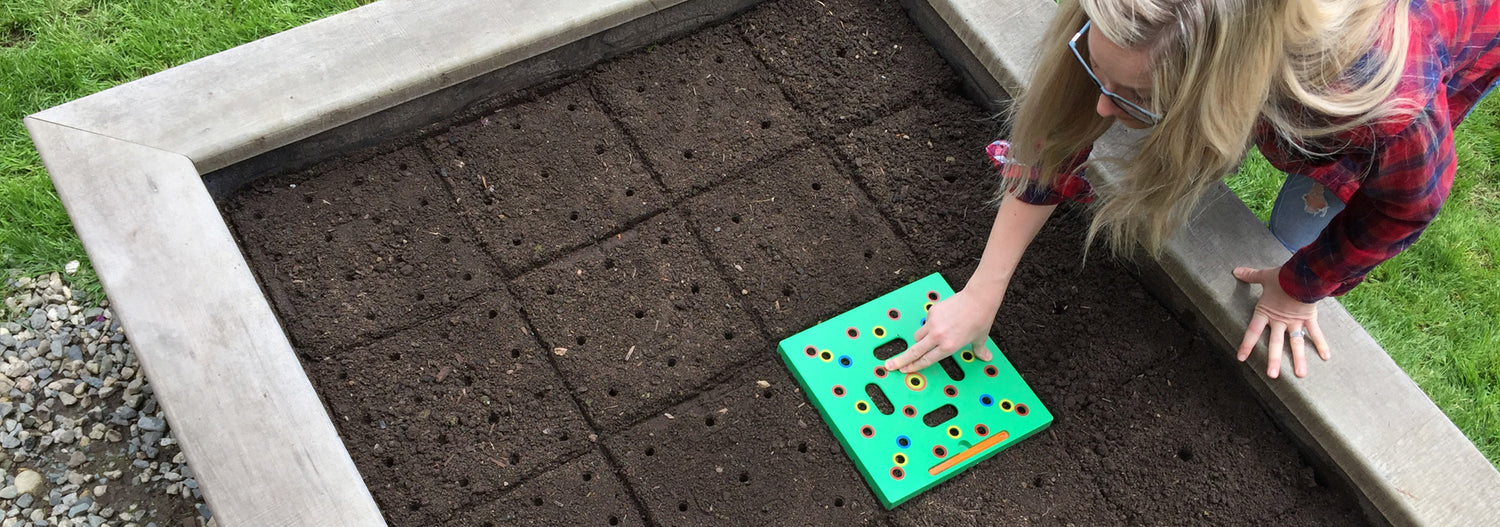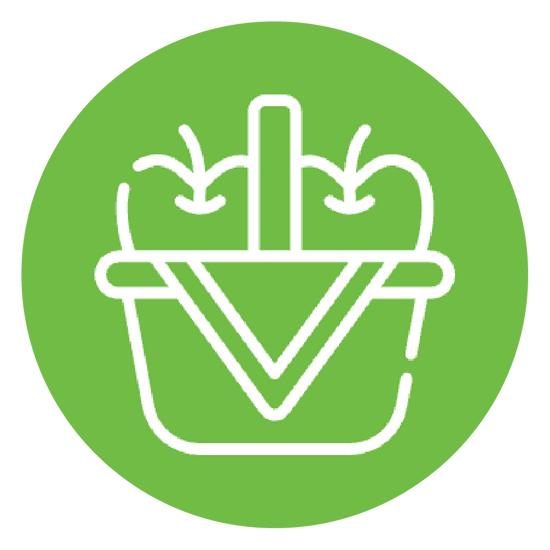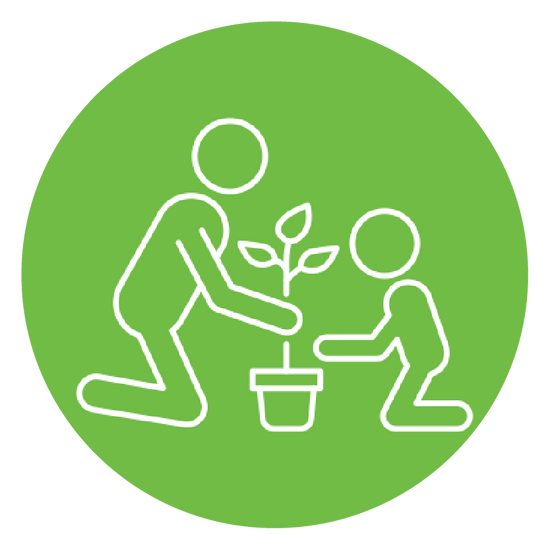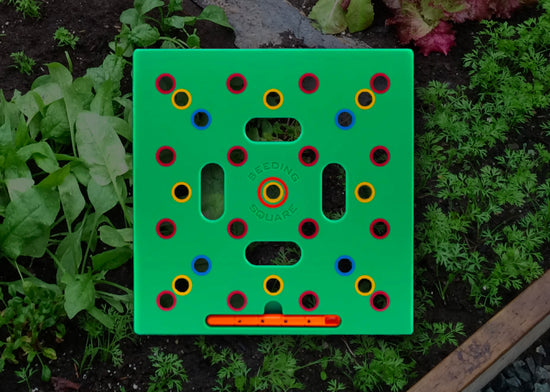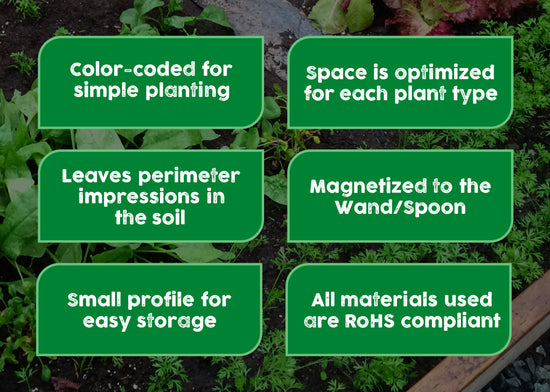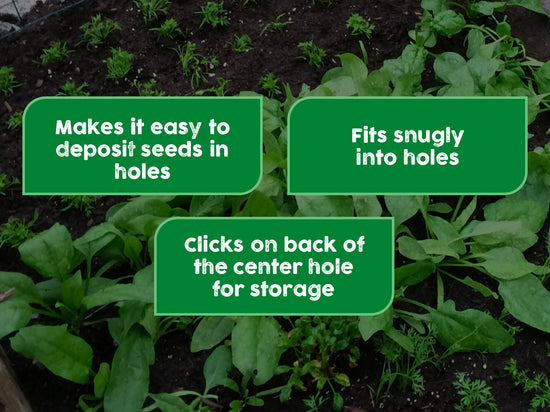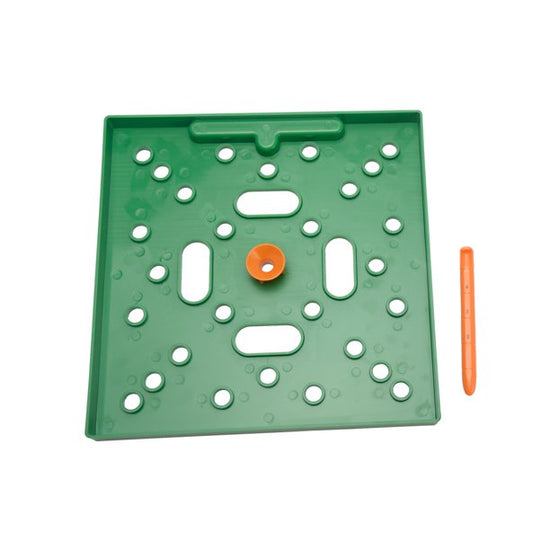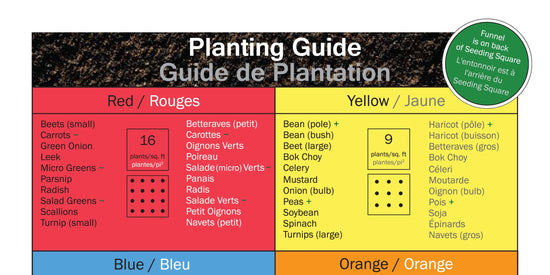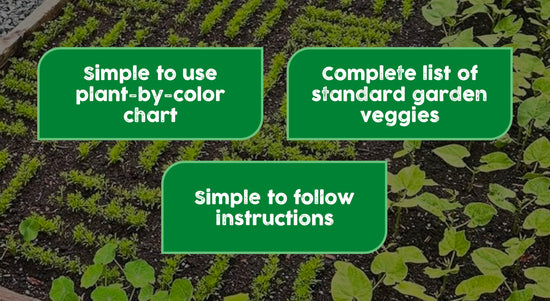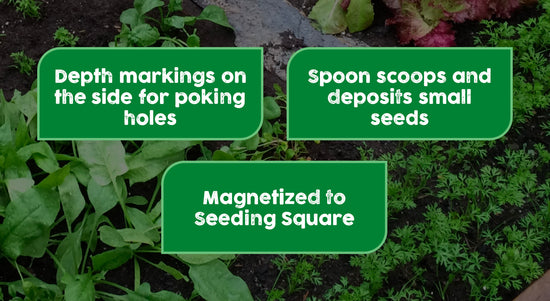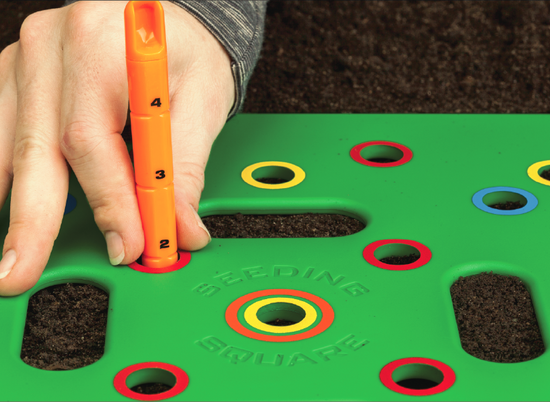All the Instructions and Guides of Seeding Square
Did you take your papers outside to play in the garden? Do you need new ones? No problem, click here for our printable PDF package!
Benefits of Seeding Square
Features of Seeding Square
Features of the Funnel
Features of the Planting Guide
Features of the Wand/Spoon
FAQs
As we receive questions and comments we will be posting them here. Please email us with anything you'd like clarified: info@seedingsquare.com. Thanks!
Do I poke all the holes?
Not unless you want plant warfare in your garden! For optimum results poke and seed the holes of only ONE colour for each press of the square. This gives each plant the perfect amount of space.
Where is my funnel?
Don't despair, your funnel is there! Flip your Seeding Square over. The funnel should be clipped onto the back of the center hole. We wanted the wand and the funnel to "stick" to the Seeding Square so you can move around the garden without keeping track of pieces - so the wand has a magnet, and the funnel clicks on. We tried to think of everything.
Is this a kid’s toy or a garden tool?
It does look like a toy, but it’s a garden tool for anyone planting a vegetable garden (including kids).We chose bright colours to encourage children to help their parents in the garden and learn to be little green thumbs, plus the bright colours make it easier to spot so as not to get run over by the lawnmower!
What if I damage my Planting Guide?
No worries, just scroll up this page andyou’ll find a link to our PDF package. It includes the Guide and Instructions as well as the new Seeding Square Herb Spacing Guide and a Companion Planting Chart, which tells you which plants grow best together. For a one-time $4 fee, we send you the PDF files - to keep and print as needed.
Is it only for small gardens?
Definitely not! It works great for all gardens.For those with lots of space the Seeding Square can be used to plant rows too...you’re not confined to have a patch-work-quilt look to your garden.All you do is stamp out the same type of vegetable over and over, and viola...you have a row! With big gardens you’ll really notice how much time you save, as in optimizing your space so thoroughly, those pesky weeds won’t have nearly as much room to grow in!
Will I get as many vegetables out of my garden if I use a Seeding Square?
Yes! In fact, you’ll get 2-5 times the harvest as compared to traditional row gardening. If you get more than you bargained for ... Share the wealth! I bet you have some friends, family, and neighbors that would love to help you out with your fresh home-grown garden bounty.
How many Seeding Squares do I need?
One should do the trick. It’s a garden tool to use on planting day...like a shovel or a hoe. Once you’ve used it to plant your garden, simply rinse it off, and put it away for your next planting day. But it does make a great gift...so maybe get two instead ;)
What if I want to plant flowers, or a vegetable that isn't on the list?
Not a problem. Seeding Square is a spacing template. Simply Google the spacing needed for whatever you want to plant, and use the colored holes that closest match the suggested spacing.
What if everything grows too close together?
Depending on your climate type, soil nutrients, amount of water, or any number of other factors you will find your plant sizes can vary. Simply make note of any changes you would make for your next planting day and slip them into the pocket of your storage bag along with your Chart & Instructions. You'll be ready to go for your next round!
My carrots twisted around each other Help!!!
This just means that too many seeds ended up on each hole. You can fix this by pruning out a few as they grow or, we actually have a neat little trick for planting carrots! First, poke all the red holes as usual, then lift the Seeding Square and play connect-the-dots making four troughs about an inch deep with your dibber. Next, sprinkle your carrot seeds into the troughs about 1/2-1 inch apart. Cover and water as usual. Mmmmmmm carrots!
How big is Seeding Square?
The faceplate is a foot by a foot and the side walls are an inch in depth. It brings the concept of Square-Foot-Gardening to a whole new level!
If I'm planting seedlings can I still use the Seeding Square?
You bet! Use the Seeding Square to poke the appropriate holes in the soil, now instead of dropping in seeds, you will use the poked holes as your indicator of where to plant each seedling.
What are the four large holes for?
Those holes are actually your handles! They allow you to get your Square lined up into corners without wasting space.

